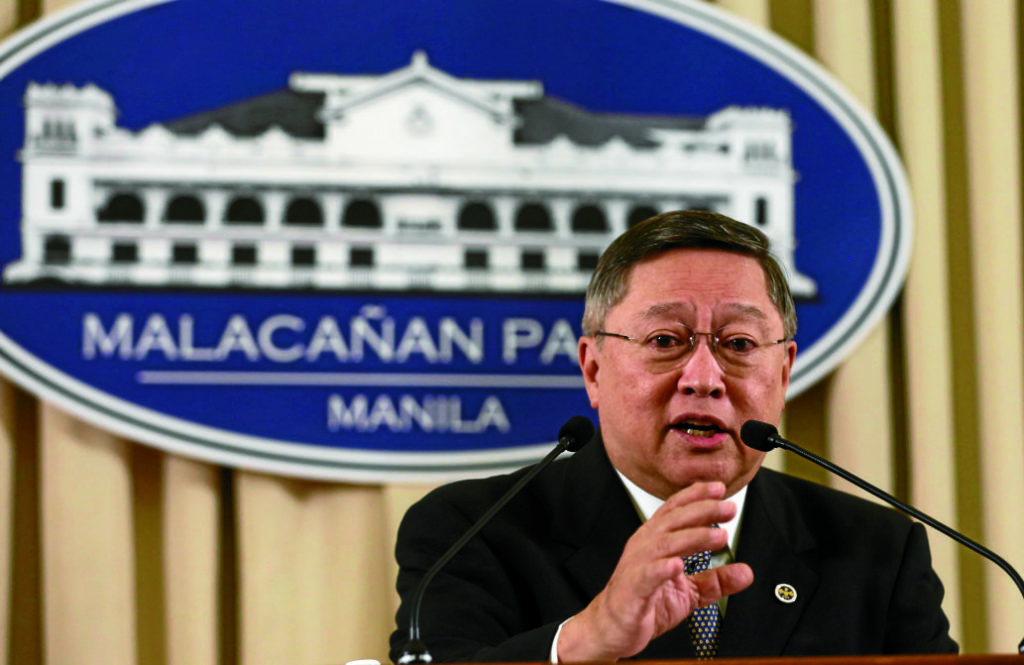
Finance Secretary Carlos Dominguez III
(File photo by JOAN BONDOC / Philippine Daily Inquirer)
LAPU-LAPU CITY—The Philippine and Japanese governments are set to sign next month the loan agreement for the initial phase of the country’s first subway system as they also vowed to fast-tracking the processing of infrastructure projects to be funded by official development assistance (ODA) from Japan, economic managers said Monday.
After the Fourth Philippines-Japan Joint Committee on Infrastructure Development and Economic Cooperation Meeting, Finance Secretary Carlos G. Dominguez III told reporters that the two side had a “most fruitful meeting.”
“The Japanese side, headed by Dr. Hiroto Izumi, presented to us measures they have undertaken to speed up project and loan and grant processing for the key infrastructure we are building with their support. The Japanese side also explained its efforts to shorten the review period relating to procurement for the projects and the provision of grant support for the conduct of advance detailed design,” Dominguez said.
Izumi, who is a special adviser to Japan Prime Minister Shinzo Abe, led the Japanese delegation.
On the other hand, the Philippine side discussed the progress on the right-of-way acquisition and land resettlement, institutional arrangements on procurement, establishment of project monitoring offices, budget allocation for government counterpart and measures to address cross-sectoral concerns, Dominguez added.
“It is clear that the government of Japan shares the great sense of urgency of the Philippine government to see shovels at the ground and complete the major projects at the soonest feasible time,” according to Dominguez.
The finance chief said that the first tranche of the loan agreement for the Metro Manila Subway Project would be signed in March. This will amount 104.5 billion yen or about $929.1 million.
“Both sides agreed to work toward the partial operability of the subway line by 2022,” Dominguez said.
But Transportation Secretary Arthur Tugade said they planned to fast-track the partial opening of the subway system to the last quarter of 2021.
Last month, the Neda Investment Coordination Committee-Cabinet Committee, cochaired by Dominguez and Socioeconomic Planning Secretary Ernesto M. Pernia, raised the project cost of the first phase of the subway by P1.4 billion to P356.9 billion from P355.6 billion previously.
Neda Undersecretary Rolando G. Tungpalan had said the 0.36-percent increase in project cost “included relocation of utilities not considered earlier.”
According to Tungpalan, the higher project cost reflected an appraisal by the Japan International Cooperation Agency.
Last month, Tungpalan said the Department of Transportation would start next year the implementation of the Metro Manila Subway Project (Phase 1), a 25.3-kilometer underground rail that would connect Quezon City and Taguig City and extend to the Ninoy Aquino International Airport.
The subway, to be financed by the Japanese government, would be completed by 2027, according to Tungpalan.